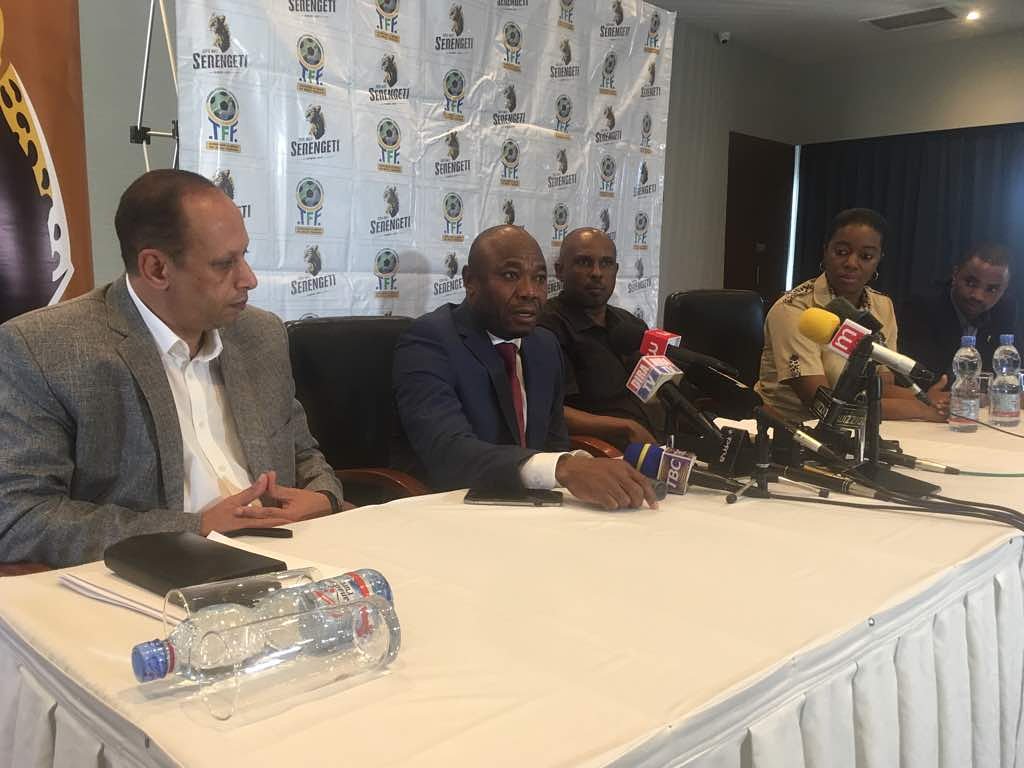The week started in good way for former African footballer of the year Emmanuel Amunike who was named as head coach of the Tanzanian national team on Monday afternoon.
An accomplished footballer, Monday’s appointment could indeed herald a fulfilling coaching career for the former Super Eagle.
Amunike is coming off an important assignment at the 2018 FIFA World Cup Russia where he served on the respected table of football technocrats as a member of the reverred FIFA Technical Study Group alongside some of the game’s greats in Marco van Basten and Carlos Alberto Parreira.
Ever since his first major assignment as a coach – with Nigeria’s Under-17s where he served as assistant to Manu Garba – in 2013, Amunike has left no one in doubt as to his knowledge of the game and his potentials to excel as a coach after such a glorious even if truncated footballing career. Perhaps, that informed the Nigeria Football Federation’s decision to hand him the Under-17s job two years later with a task of defending the title won in 2013.
What followed; after a fourth placed finish in the African Under-17 Championship was a swashbuckling display at the global stage in Chile. Amunike’s team scored twenty-three goals in seven game, outclassing African champions Mali in the final 2-0.
Amunike has however not found life rosy since that 2015 conquest as he evolved in his coaching career. First, he took the same set of Nigeria Under-17 boys to the Under-20s a year later but they failed to qualify for the African Championship despite beating Sudan away from home in their first leg final qualifier. That was a major setback capable of haunting the generation of footballers and the coach.
Undaunted, Amunike continued to work to make himself visible and in November 2017, accepted a job offer as coach of Sudanese side Al-Khartoum Al Watani. Again, the romance ended within four months as both parties sever ties after eight matches (Amunike’s side winning three, losing three and drawing two of the games). He told the BBC he left due to financial issues but the club claimed it was based on performances.
Amunike’s eagerness in not staying long out of the game has helped him further and less than five months after leaving the job in Sudan, the former Barcelona star has been handed the biggest job of his career yet, in charge of the Taifa Stars of Tanzania. He has been given a 2-year deal and the immediate task will be to qualify for the 2019 Africa Cup of Nations, a huge task, although not out of reach.
Putting the enormity of Amunike’s new job in proper perspective; Tanzania have only ever been at the Africa Cup of Nations once, in 1980 when Nigeria hosted and won the tournament. They dispensed with the service of former coach Salum Mayanga whose last match in charge was a 2-0 friendly win over DR Congo in March, making him the third coach in 18 months to be fired by the Tanzanian Football Federation.
The Taifa Stars drew their first game in Group L of the AFCON qualifiers, at home to Lesotho but with the Confederation of African Football (CAF) expanding the 2019 tournament, they still have a good chance to qualify for the first time in 38 years. They face group leaders Uganda in Kampala in exactly a month’s time in a game Amunike must bring all his magic to the plate as it is capable of defining their progress.
It has been a world of blackout for Nigerian coaches on the continent for decades. The only notable success recorded was Stephen Keshi’s impeccable achievement with Togo while there was really nothing to show for Shuaibu Amodu, Christian Chukwu and Harrison Okagbue’s efforts in other parts of the continent.
Amunike’s success in Tanzania (fingers crossed) will most definitely herald a fulfilment phase of his burgeoning potentials because the platform that would be given by a successful AFCON qualification cannot be overemphasised. He has his work cut out no doubt, in a group having Uganda, Cape Verde and Lesotho but as the cliché goes: “To be the best, you have to beat the best.” These are not even the best on the continent.
In fulfilment of his potentials as trainer, Amunike’s success in his new job can also act as the needed gateway for talented Nigerian coaches to earn more trust from other nations in the continent in such a way that Jose Mourinho’s 2003 success with FC Porto supposedly opened the gate for Portuguese coaches.
Former Nigerian Olympics coach Samson Siasia has applied for coaching opportunities in some parts of Africa very recently without success while Daniel Amokachi had a stint in Finland. Sunday Oliseh’s coaching career is properly articulated as well.
By the time Amunike steps up into the dugout of the Nelson Mandela Stadium in Kampala on September 7, he should know fully well that he carries the burden of his own coaching career as much as the Moses’ Rod to lead his Nigerian colleagues – especially many of the 1994 set – out of the wilderness.








